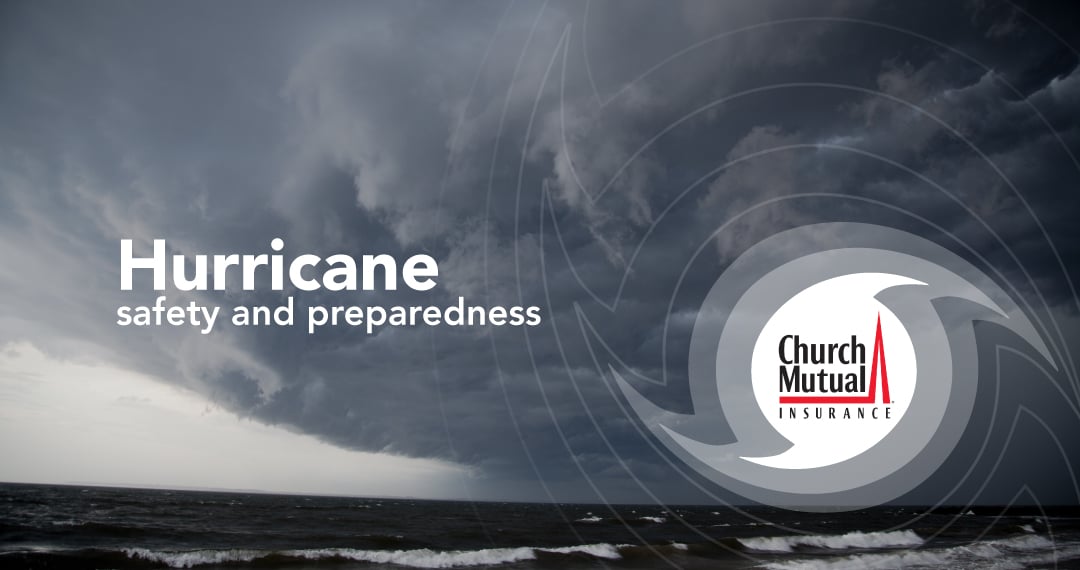Prepare for cold and freezing weather.
Help prevent frozen pipes, water damage and other costly issues with our
winter weather resources.
If your organization’s facilities are located in an area at risk for hurricanes, it’s important to have a plan in place before you receive word of a threat. Even the weakest hurricanes can cause significant damage through high winds and flooding.
Church Mutual works with many organizations throughout the United States that must be prepared for hurricanes. Here are some steps you can consider taking:
Prepare and protect your organization from nature’s destructive forces by viewing our 10 Essentials of Severe Weather Preparedness. Then take action and step up your severe weather and natural disaster preparedness efforts by using our Severe Weather Preparedness Assessment to see what your organization has covered and discover areas that may need attention.
IMPORTANT: Keeping your organization’s contact information up to date with your insurance provider helps them serve you better, especially if they attempt to contact you before, during or after a weather event.
If your organization’s facilities are located in an area at risk for hurricanes, it’s important to have a plan in place before you receive word of a threat. Even the weakest hurricanes can cause significant damage through high winds and flooding.
Church Mutual works with many organizations throughout the United States that must be prepared for hurricanes. Here are some steps you can consider taking:
Prepare and protect your organization from nature’s destructive forces by viewing our 10 Essentials of Severe Weather Preparedness. Then take action and step up your severe weather and natural disaster preparedness efforts by using our Severe Weather Preparedness Assessment to see what your organization has covered and discover areas that may need attention.
IMPORTANT: Keeping your organization’s contact information up to date with your insurance provider helps them serve you better, especially if they attempt to contact you before, during or after a weather event.


If your organization’s facilities are located in an area at risk for hurricanes, it’s important to have a plan in place before you receive word of a threat. Even the weakest hurricanes can cause significant damage through high winds and flooding.
Church Mutual works with many organizations throughout the United States that must be prepared for hurricanes. Here are some steps you can consider taking:
Prepare and protect your organization from nature’s destructive forces by viewing our 10 Essentials of Severe Weather Preparedness. Then take action and step up your severe weather and natural disaster preparedness efforts by using our Severe Weather Preparedness Assessment to see what your organization has covered and discover areas that may need attention.
IMPORTANT: Keeping your organization’s contact information up to date with your insurance provider helps them serve you better, especially if they attempt to contact you before, during or after a weather event.